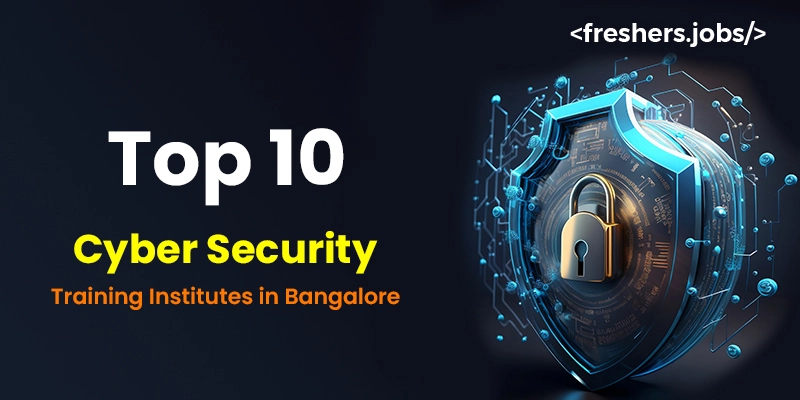Cyber Security becomes increasingly important as technology keeps advancing to enhance efficiency and business growth. It goes beyond technical aspects and becomes a crucial strategy to protect sensitive information, maintain trust, and ensure smooth operations. Businesses are advised to prioritize and invest in robust cybersecurity measures to minimize risks and fortify defences against the ever-changing landscape of cyber threats in our era of constant connectivity and digital reliance.

The rapid shift to digitizing business processes, the rise in data volumes, and the interconnection of devices have created a fertile ground for cyber threats. Additionally, securing virtual environments and remote access points becomes essential as businesses embrace cloud services and remote work models. Cyber Security measures must be flexible and adaptive, evolving alongside technological advancements and emerging threats. Regular updates, patches, and a vigilant monitoring system are crucial components of this dynamic Cyber Security approach. Let’s explore the Top 10 Cyber Security Training Institute in Bangalore.
Below are the Top 10 Cyber Security Training Institute in Bangalore.
- FITA Academy
- Simplilearn
- Intellipaat
- Edureka
- Apponix Technologies
- Inventateq
- Texial
- Skillogic
- 360DigiTMG
- Hacker School
FITA Academy
FITA Academy distinguishes itself as a prominent institution offering an extensive array of more than 120 courses accessible through both online and offline modes. Recognised for delivering crucial technical and professional certifications, the academy consistently earns acclaim as one of the foremost authorities in the industry. With a team of more than 1000 trainers boasting decades of experience, the academy has positively influenced the learning paths of more than 75,000 individuals. Demonstrating a dedicated commitment to delivering high-quality training, the institute has established multiple branches in Bangalore, Chennai, Pondicherry, Coimbatore, and Madurai. This strategic expansion ensures that individuals across diverse regions can access quality training opportunities.
Why choose Cyber Security Course in Bangalore at FITA Academy?
FITA Academy provides a comprehensive Cyber Security Course in Bangalore, covering fundamental to advanced-level concepts. The training equips individuals with a well-rounded skill set and the necessary expertise to protect organizations from cyber threats and vulnerabilities. The curriculum incorporates two live projects to enhance the hands-on learning experience. The course covers a range of topics from fundamental to advanced, including Cryptography, Operating Systems, Vulnerability Assessments, Intrusion Detection, Network Security, Authentication, Threat Intelligence, Incident Response, Digital Forensics, Ethical Hacking, Endpoint Protection, and more. Ensuring affordability, FITA Academy makes the course accessible without compromising on quality. The institute offers flexibility in batch schedules, providing options for both weekend and weekday classes to accommodate learners. Additionally, successful participants receive placement support upon completing the training.
Tailored Curriculum for Cyber Security Training in Bangalore
The curriculum of Cyber Security Training in Bangalore is thoughtfully crafted to encompass the fundamental core principles of Cyber Security. It includes comprehensive coverage of Networking and Network Security alongside Operating System Security. Students acquire expertise in Web Application Security, Cryptography, and PKI. The curriculum covers Threats & Incident Response, Penetration Testing & Ethical Hacking, and Security Operations & Management. Additionally, the program explores advanced topics like Vulnerability Assessments, Intrusion Detection, Authentication, Threat Intelligence, Digital Forensics, and Endpoint Protection.
Expert Instructors for Cyber Security Training in Bangalore
A team of expert trainers leads FITA Academy’s Cyber Security Training in Bangalore. These instructors are committed to imparting theoretical knowledge while providing valuable real-world insights to students. They play a pivotal role in keeping learners updated on the latest industry trends, ensuring thorough preparation for the dynamic field of Cyber Security.
Project Presentation Sessions Cyber Security Course in Bangalore
A distinctive aspect of FITA Academy’s Cyber Security Course in Bangalore is the inclusion of project presentation sessions. Recognizing the importance of hands-on experience in mastering Cyber Security and preparing for a successful career, these sessions allow students to apply Cyber Security principles in real-world scenarios, providing valuable practical exposure.
Complimentary Placement Sessions at Cyber Security Institute in Bangalore
This Cyber Security Institute in Bangalore is dedicated to providing comprehensive Training beyond traditional classroom learning. The institute offers complimentary placement sessions to prepare students for the competitive job market. These sessions include resume building, refining interview skills, job placement assistance, and career guidance. Carefully designed, these sessions aim to support students in achieving their career objectives. With an extensive network of 1,500+ partner companies, FITA Academy facilitates job placements for graduates, presenting various opportunities within the Cyber Security industry. This broad network ensures that students have access to promising career prospects, facilitating a smooth and successful transition into the professional realm.
Simplilearn
Simplilearn is an established online platform that provides flexible Cyber Security Training covering fundamental to advanced-level concepts. While the Institute offers various facilities, the primary emphasis on online courses may limit direct interaction between learners and trainers, and it comes at a higher price.
IntelliPaat
IntelliPaat specializes in delivering Cyber Security training for both beginners and advanced learners. Despite valuable learning materials in their curriculum, the course cost may be relatively higher compared to other institutes.
Edureka
Edureka offers comprehensive Cyber Security training with real-time assistance. Despite extensive facilities, their primary focus is on online courses, potentially impacting the ease of interaction between trainers and aspirants.
Apponix Technologies
Apponix Technologies concentrates on providing Cyber Security Training to enhance skills and offer valuable industry knowledge. However, it may not be the top choice for those seeking a more in-depth learning experience.
Inventateq
Inventateq provides specialized Cyber Security Training tailored to industry-specific requirements. However, their placement support might not be as comprehensive compared to some other institutes.
Skillogic
Skillogic delivers an extensive Cyber Security course, offering essential skills. However, this course might not be the preferred choice for learners seeking a more extensive and in-depth learning experience.
Texial
Texial specializes in providing tailored Cyber Security Training for industry-specific needs. However, their practical training aspect may not be as comprehensive compared to other institutes.
360DigiTMG
360DigiTMG specializes in providing Cyber Security Training, covering comprehensive concepts. While they offer these benefits, their level of placement support might be relatively less extensive compared to certain other institutes.
Hacker School
Hacker School offers Cyber Security courses with a focus on imparting essential skills. However, it’s worth noting that their practical training component may not be as extensive as some other institutes.
Freshers Jobs carefully selected these institutes after thorough research, considering factors such as brand reputation, student feedback, and a proven track record of student achievements.
Cyber Security in Today’s Business
The significance of Cyber Security is pivotal in today’s business landscape, playing a critical role as a safeguard against various digital threats. As businesses increasingly rely on technology for streamlined operations, communication, and the storage of sensitive data, robust Cyber Security measures have become essential than ever. In the era of digital advancements, Cyber Security is not merely a technical requirement but also a strategic necessity for businesses. It protects assets, preserves trust, and ensures the resilience of operations against the ever-evolving landscape of cyber threats. In navigating the complexities/challenges of the digital realm, prioritizing and investing in Cyber Security is foundational for achieving enduring business success.
What is Cyber Security?
Cyber Security or information security, is a field dedicated to safeguarding computer systems, networks, and digital data from theft, damage, unauthorized access, and other cyber threats. It involves implementing diverse technologies, processes, and practices aimed at protecting digital information and guaranteeing data confidentiality, integrity, and availability. As cyber threats become more sophisticated & frequent, Cyber Security has become crucial in modern digital operations.It is essential for safeguarding confidential data, preserving trust, and ensuring the resilience of systems and networks against continually evolving cyber risks.
Advantages of Cyber Security
- Protection of Sensitive Data: Cyber Security ensures the confidentiality and integrity of sensitive data, encompassing personal information, financial records, and intellectual property. For both individuals and businesses, this protection is essential.
- Prevention of Unauthorized Access: Cyber Security measures, such as firewalls, secure authentication, and encryption, thwart unauthorized access to networks, systems, and sensitive information. This aids in maintaining the privacy and security of digital assets.
- Mitigation of Financial Losses: Financial losses brought on by ransomware attacks, data breaches, and other cyberthreats can be avoided with the use of cyber security. By guarding against these risks, organizations can avoid costly repercussions and protect their financial well-being.
- Preservation of Reputation: A Cyber Security breach can significantly impact an organization’s reputation. Effective Cyber Security measures instill trust among customers, clients, and partners, preserving the reputation and credibility of businesses.
- Ensuring Business Continuity: Cyber Security measures, including regular backups and incident response plans, contribute to business continuity. In a cyber incident, organizations can recover quickly and minimize disruptions to operations.
- Compliance with Regulations: Various industries are subject to regulations crucial for protecting sensitive information. Cyber Security helps organizations comply with these regulations, avoiding legal consequences and ensuring ethical data handling practices.
- Protection Against Intellectual Property Theft: Cyber Security safeguards intellectual property from theft, ensuring that proprietary information, research, and innovation remain confidential. This protection is crucial for businesses involved in research and development.
- Enhanced Trust and Customer Confidence: Cyber Security practices build customer trust and confidence. A positive customer experience often results from individuals feeling assured that their data is secure, leading to increased engagement with online services.
- Prevention of Disruption to Operations: Cyber Security measures, including intrusion detection and prevention systems, help prevent disruptions to operations caused by cyberattacks. This is crucial for maintaining the availability and functionality of digital systems.
- Protection of National Security: Cyber Security is critical to national security. Governments and organizations involved in critical infrastructure, defense, and public services rely on Cyber Security to guard against cyber threats that could compromise national interests.
- Promotion of Innovation: A secure digital environment encourages innovation by fostering a safe space for research, development, and exchanging ideas. Cyber Security supports a climate where technological advancements can thrive without the constant fear of theft or sabotage.
- Global Economic Stability: Cyber Security contributes to global economic stability by reducing the impact of cyber threats on businesses and financial systems. A secure digital ecosystem is essential for sustained economic growth and international trade.
Key Components of Cyber Security
- Firewalls: Acting as a protective barrier between trusted internal and untrusted external networks, firewalls manage network traffic, both inbound and outbound, according to predetermined security rules. They prevent unauthorized access and defend against malicious activities.
- Anti-Virus and Anti-Malware Software: Designed to detect, prevent, and remove malicious software, including viruses, worms, Trojans, and other types of malware, these programs require frequent updates to guarantee defense against the most recent attacks.
- IDS and IPS: Intrusion Detection Systems (IDS) monitor network/system activities for malicious behavior or policy violations, while Intrusion Prevention Systems (IPS) actively prevent or block detected threats. Together, they offer real-time monitoring and protection against unauthorized access and attacks.
- Encryption: Transforming data into a secure format accessible only with the appropriate decryption key, encryption ensures the confidentiality of sensitive information, particularly during data transmission and storage.
- Authentication and Access Control: Strong authentication mechanisms, like multi-factor authentication (MFA), verify user or system identity. Access control regulates resource access, minimizing the risk of unauthorized entry.
- Security Auditing and Monitoring: Regular security audits and monitoring activities identify vulnerabilities, assess security policies, and detect anomalous behavior. This proactive approach facilitates timely responses to potential security incidents.
- Security Information & Event Management (SIEM): SIEM tools gather and examine log data from different devices, systems, and apps. They help identify patterns or anomalies indicating security incidents, providing insights for effective incident response.
- Patch Management: Maintaining software, operating systems, and applications using the most recent security patches is essential for fixing known vulnerabilities. Patch management ensures protection against exploits targeting outdated software.
- Network Security: Network security involves implementing measures like Virtual Private Networks (VPNs), secure Wi-Fi protocols, and network segmentation to protect data integrity and confidentiality during network traversal.
- Incident Response and Disaster Recovery Plans: Well-defined incident response and disaster recovery plans minimize the impact of security incidents by outlining the steps to be taken in a security breach, ensuring a coordinated and effective response.
- User Education and Awareness: Informing users about best practices in Cyber Security and raising awareness of potential threats is fundamental. Educated and vigilant users are less likely to fall victim to social engineering attacks and other cyber threats.
- Mobile Device Management (MDM): With the increasing prevalence of mobile devices in the workplace, solutions for mobile device management (MDM) are essential for maintaining device security, enforcing regulations, and protecting company data.
- Cloud Security: Securing cloud-based data and services becomes crucial as organizations migrate to cloud environments. Cloud security measures include encryption, access controls, and robust identity and access management.
- Security Policies and Governance: Establishing and enforcing Cyber Security policies and governance frameworks are essential for creating a secure organizational culture. This involves defining acceptable use policies, incident response procedures, and compliance standards.
Job Opportunities in Cyber Security
- Security Analyst: Responsibilities involve monitoring security alerts, analyzing security data, and assisting in implementing security measures.
- IT Security Administrator: Involves managing and configuring security tools, implementing security policies, and providing day-to-day support for security operations.
- Network Security Analyst: Focuses on monitoring and securing an organization’s network infrastructure, detecting and responding to security incidents.
- Junior Penetration Tester: Identifies vulnerabilities in systems and apps by performing penetration tests and security assessments.
- Incident Responder: Responds to security incidents, investigates breaches, and implements corrective measures to prevent future incidents.
- Security Consultant: Provides expert advice on Cyber Security strategies, conducts risk assessments, and assists in developing security policies.
- Security Engineer: Creates, installs, and manages intrusion detection systems, firewalls, and encryption protocols, among other security infrastructure.
- Threat Intelligence Analyst: Analyzes and interprets threat intelligence to identify potential risks and vulnerabilities, enabling proactive security measures.
- Security Operations Center (SOC) Analyst: Operates within a Security Operations Center (SOC) to oversee and address security incidents, ensuring the continuous security of an organization’s systems.
- Cryptographer: Specializes in designing and implementing cryptographic solutions to protect data confidentiality and integrity.
- Security Architect: Plans and supervises the implementation of comprehensive security architectures for organizations, ensuring a holistic approach to Cyber Security.
- Chief Information Security Officer (CISO): Holds a leadership role responsible for an organization’s overall security strategy, policy development, and implementation.
- Security Consultant (Senior/Principal): Provides high-level Cyber Security consulting, often specializing in specific areas such as penetration testing, risk management, or compliance.
- Cyber Security Manager/Director: Manages a team of Cyber Security professionals, oversees security initiatives, and collaborates with other departments to ensure a secure environment.
- Cyber Security Analyst (Senior/Lead): Takes a lead role in analyzing and responding to advanced security incidents, contributing to developing security protocols.
- Chief Security Officer (CSO): Holds a top executive role responsible for the overall security posture of an organization, often overseeing physical and information security.
- Chief Information Officer (CIO): In organizations where the CIO strongly focuses on Cyber Security, this role involves strategic leadership in integrating technology and security.
- Chief Technology Officer (CTO): In technology-driven organizations, the CTO may have a significant role in defining and overseeing Cyber Security strategies.
The rapid advancement of cyber threats, ranging from data breaches to sophisticated phishing scams, emphasizes the necessity for a proactive stance in Cyber Security. More than responding to incidents is required, businesses must anticipate and strengthen their defenses against the continually expanding range of digital risks. Consequently, Cyber Security becomes a fundamental element of overall risk management, addressing potential financial losses, reputational damage, and legal repercussions linked to breaches. We explored the Top 10 Cyber Security Training Institute in Bangalore. We delved into the role of Cyber Security in the contemporary business era, highlighting its significance, essential aspects, and the job opportunities available in the field.




